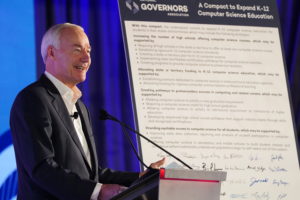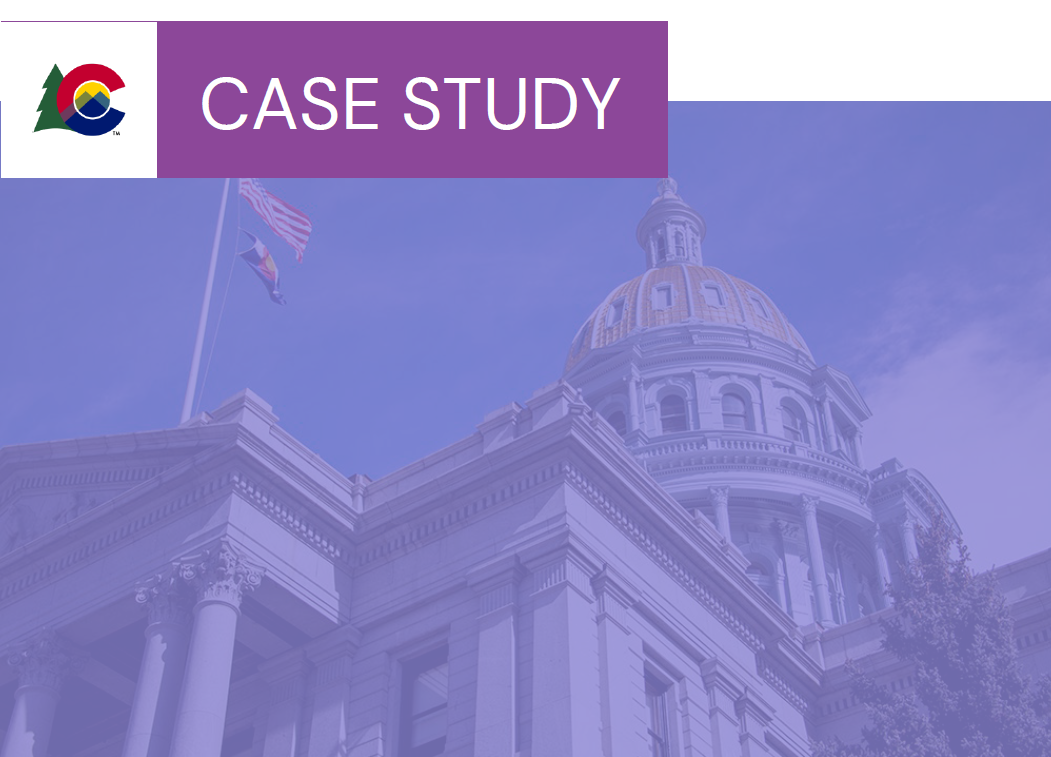Portland, Maine – In the opening session of the National Governors Association (NGA) Summer Meeting, NGA Chairman Arkansas Governor Asa Hutchinson unveiled a Compact to Advance K-12 Computer Science Education signed by 50 Governors.
“Computer science education is an urgent issue that impacts so many of our priorities as Governors – including economic development, job creation and homeland security,” said Governor Hutchinson. “Bottom line: If we’re not equipping students – of all ages – with computer skills, we’re not preparing them for today’s job market. Governors have demonstrated strong bipartisan leadership in advancing policies to prepare our states and our nation to compete in the 21st century.”

In the opening Plenary session, Governor Hutchinson was joined by President of DEKA and Founder of FIRST Dean Kamen and Intel CEO Patrick Gelsinger, who shared their insights on workforce and cybersecurity needs.
Governor Hutchinson also announced that 50 Governors have signed a computer science education compact, committing to strategies for expanding computer science education in public schools, including by establishing state plans, providing funds and creating pathways to postsecondary success.
Governor Hutchinson announced his Chairman’s Initiative to Advance K-12 Computer Science Education in 2021. Throughout his tenure as NGA Chairman, he has worked with fellow Governors to showcase best practices in the field from all states and territories — convening fellow Governors, students, educators, non-profit leaders and leading computing employers to collaborate on solutions and underline the nationwide importance of computer science education.
By making computer science a requirement for graduation, funding more classes and supporting teacher professional development opportunities, Arkansas has become a national leader in K-12 computer science education. Since 2015, the number of computer science students in Arkansas has jumped from 1,110 to over 13,000 – a 770% increase – while also driving a 1,300% increase in the number of girls and a 700% increase in the number of African-American students enrolled in computer science classes.













